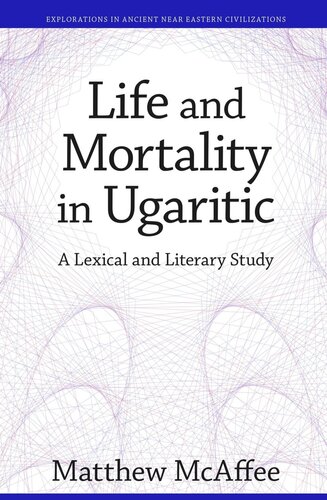

Most ebook files are in PDF format, so you can easily read them using various software such as Foxit Reader or directly on the Google Chrome browser.
Some ebook files are released by publishers in other formats such as .awz, .mobi, .epub, .fb2, etc. You may need to install specific software to read these formats on mobile/PC, such as Calibre.
Please read the tutorial at this link: https://ebookbell.com/faq
We offer FREE conversion to the popular formats you request; however, this may take some time. Therefore, right after payment, please email us, and we will try to provide the service as quickly as possible.
For some exceptional file formats or broken links (if any), please refrain from opening any disputes. Instead, email us first, and we will try to assist within a maximum of 6 hours.
EbookBell Team

4.4
72 reviewsWhile topics such as death, funerary cult, and the netherworld have received considerable scholarly attention in the context of the Ugaritic textual corpus, the related concept of life has been relatively neglected. Life and Mortality in Ugaritic takes as its premise that one cannot grasp the significance of mwt (“to die”) without first having wrestled with the concept of ḥyy (“to live”).
In this book, Matthew McAffee takes a lexical approach to the study of life and death in the Ugaritic textual corpus. He identifies and analyzes the Ugaritic terms most commonly used to talk about life and mortality in order to construct a more representative framework of the ancient perspective on these topics, and he concludes by synthesizing the results of this lexical study into a broader literary discussion that considers, among other things, the implications for our understanding of the first-millennium Katumuwa stele from Zincirli.
McAffee’s study complements previous scholarly work in this area, which has tended to rely on conceptual and theoretical treatment of mortality, and advances the discussion by providing a more focused lexical analysis of the Ugaritic terms in question. It will be of interest to Semitic scholars and those who study Ugaritic in particular, in addition to students of the culture of the ancient Levant.